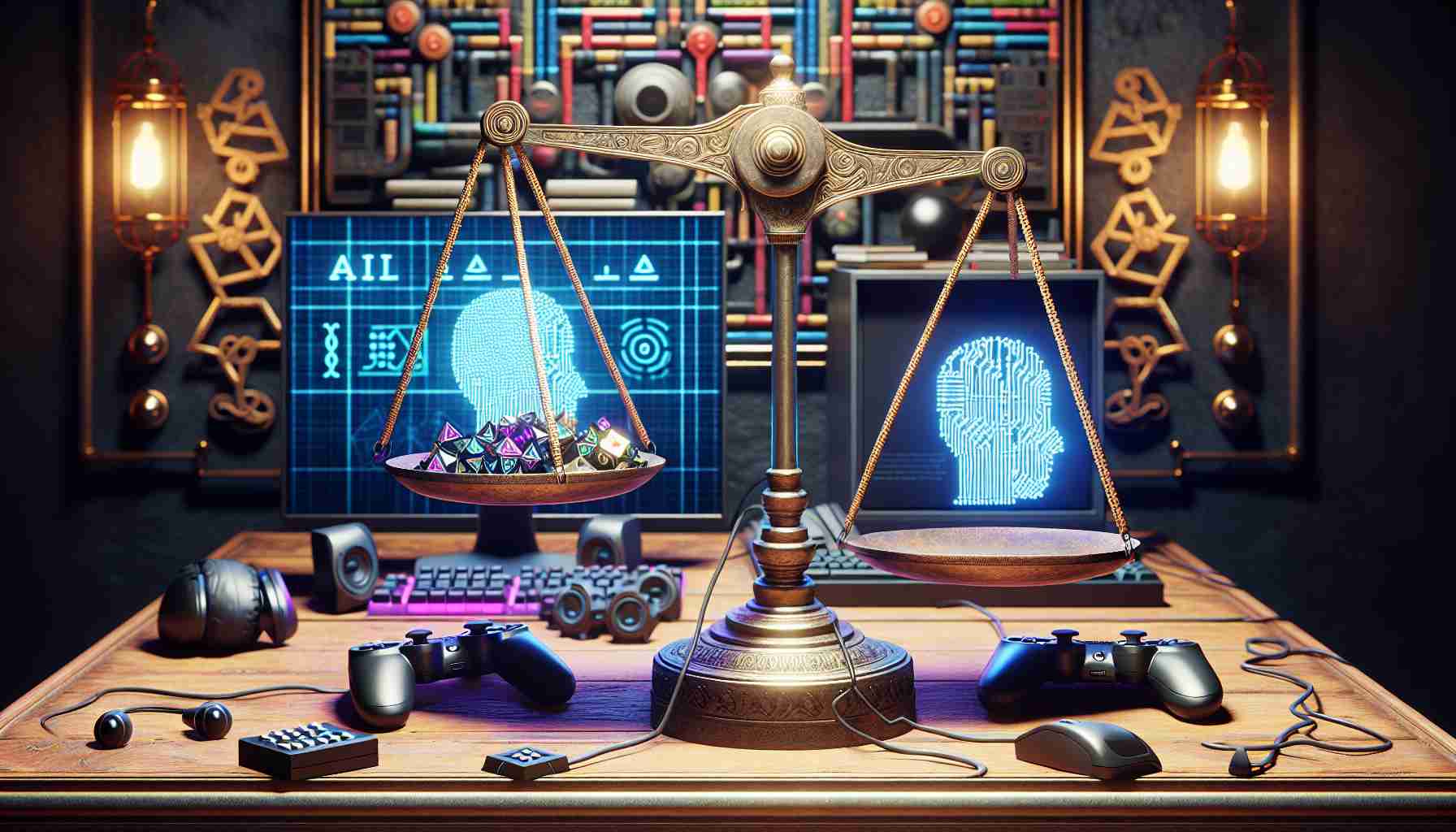Generative AI has emerged as a controversial topic in the gaming industry, sparking intense debate among gamers and developers alike. The developer of Palworld recently sat down for an interview with Game Spark to discuss the ethical implications of this technology.
While the conversation mainly revolved around AI: Art Impostor, a game previously released by Pocketpair, Game Spark acknowledged that generative AI has stirred up considerable controversy both online and in reality. Pocketpair representative and CEO, Takuro Mizobe, emphasized that generative AI is still a rapidly evolving field. While some may appreciate it from a technological standpoint, others have reservations about its impact from an artistic and moral perspective.
Mizobe believes that it is vital for individuals to engage in ongoing debates about the ethics of generative AI and the need for regulations. He acknowledges that AI has become an integral tool in many industries and predicts that games will eventually be unable to avoid its integration. However, he also recognizes that the rules governing AI and the technology itself are still in the process of evolving. Therefore, caution must be exercised when employing it in projects.
Expressing his personal views, Mizobe revealed that he considers AI: Art Impostor to be a good game. He felt a sense of responsibility to create a game utilizing generative AI due to its potential and growing interest among the public. Nevertheless, he has received valuable feedback since its release and emphasizes Pocketpair’s commitment to avoiding any features that could cause discontent or upset among players.
Looking toward the future, Pocketpair aims to strike a balance between incorporating developing technologies and considering public sentiment. As a game developer focused on entertainment, they are keen on taking into account people’s opinions regarding technology implementation in games.
AI: Art Impostor, a game by Pocketpair, was released in 2022 and offers players an AI drawing experience akin to “A Fake Artist Goes to New York.” By utilizing generative AI, players can create drawings and uncover the impostor. The game is available on Windows PC and mobile devices, aiming to provide an immersive and engaging experience.
Additional Facts:
1. Generative AI in gaming refers to the use of artificial intelligence algorithms to generate content, such as characters, dialogue, landscapes, and music, in video games.
2. Generative AI allows for dynamic and personalized gameplay experiences, as the AI can adapt and respond to player actions in real-time.
3. The use of generative AI in gaming has become increasingly popular, with major game developers and studios exploring its potential in creating unique and innovative gameplay experiences.
4. Ethical concerns related to generative AI in gaming include issues of intellectual property, bias and discrimination, privacy, player manipulation, and the impact on the creative process in game development.
5. The potential for generative AI to replace human creativity and artistry in game development is a subject of debate among industry professionals and gamers.
6. Regulations and ethical guidelines for the use of generative AI in gaming are still being developed, and there is a need for industry-wide discussions and standards to ensure responsible implementation.
Most Important Questions:
1. How can generative AI algorithms be designed to avoid bias and discrimination in gameplay experiences?
2. What impact does the use of generative AI have on the role of human creativity and artistry in game development?
3. How can players be assured that their privacy is protected when interacting with generative AI systems in games?
4. What measures can be taken to prevent generative AI from manipulating player behavior or fostering addictive gameplay patterns?
5. How can intellectual property rights be protected when generative AI algorithms are used to create game content?
6. How can the game development industry ensure responsible and ethical use of generative AI while still promoting innovation and creativity?
Key Challenges or Controversies:
1. Potential ethical dilemmas arising from the use of generative AI, such as bias and discrimination, privacy concerns, and manipulation of player behavior.
2. The impact of generative AI on the role of human creativity and artistry in game development, and the fear of AI replacing human input and innovation.
3. The need for regulations and ethical guidelines to govern the use of generative AI in gaming, to ensure fair and responsible implementation.
4. Balancing the desire for personalized and dynamic gameplay experiences with the potential risks and concerns associated with generative AI.
5. Intellectual property challenges arising from the use of generative AI algorithms to create game content, and the potential for copyright infringement or plagiarism.
Advantages of Generative AI in Gaming:
1. Enhanced gameplay experiences with dynamic and personalized content that adapts to player actions.
2. The potential for infinite replayability and content generation, keeping games fresh and engaging.
3. Faster and more efficient game content creation, reducing development time and costs.
4. The ability to generate unique and innovative game content that may not have been conceived through traditional development methods.
5. Potential for increased accessibility and inclusivity in gaming, as generative AI can create content tailored to individual player preferences and needs.
Disadvantages of Generative AI in Gaming:
1. Ethical concerns regarding bias, discrimination, privacy, and manipulation of player behavior.
2. The potential impact on the role of human creativity and artistry in game development, with AI potentially replacing human input and innovation.
3. Intellectual property challenges, as generative AI algorithms may create content that infringes upon existing copyrights or lacks originality.
4. The need for regulations and ethical guidelines to govern the responsible use of generative AI in gaming, which are still being developed.
5. The reliance on AI algorithms for content generation may lead to formulaic and predictable gameplay experiences if not carefully implemented.
Suggested Related Links:
Pocketpair Official Website
Game Spark



















